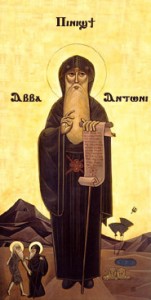Last week, in our discussion of Gothic Heroines and Natural Selection, Flawed Events posted about Jane Austen’s Northanger Abbey as referring to Ann Radcliffe. Austen pokes fun at Radcliffe, and at Gothic fiction in general, throughout Northanger Abbey. It’s a great book, funny and piquant, but I thought it might be nice to include for once passage of Radcliffe’s that shows what a powerful writer she really could be, and why she influenced writers from Keats to Hugo.
This is the introduction of the eponymous villain from The Italian:
There lived in the Dominican convent of the Spirito Santo, at Naples, a man called father Schedoni; an Italian, as his name imported, but whose family was unknown, and from some circumstances, it appeared, that he wished to throw an impenetrable veil over his origin. For whatever reason, he was never heard to mention a relative, or the place of his nativity, and he had artfully eluded every enquiry that approached the subject, which the curiosity of his associates had occasionally prompted. There were circumstances, however, which appeared to indicate him to be a man of birth, and of fallen fortune; his spirit, as it had sometimes looked forth from under the disguise of his manners, seemed lofty; it shewed not, however, the aspirings of a generous mind, but rather the gloomy pride of a disappointed one. Some few persons in the convent, who had been interested by his appearance, believed that the peculiarities of his manners, his severe reserve and unconquerable silence, his solitary habits and frequent penances, were the effect of misfortunes preying upon a haughty and disordered spirit; while others conjectured them the consequence of some hideous crime gnawing upon an awakened conscience.
He would sometimes abstract himself from the society for whole days together, or when with such a disposition he was compelled to mingle with it, he seemed unconscious where he was, and continued shrouded in meditation and silence till he was again alone. There were times when it was unknown whither he had retired, notwithstanding that his steps had been watched, and his customary haunts examined. No one ever heard him complain. The elder brothers of the convent said that he had talents, but denied him learning; they applauded him for the profound subtlety which he occasionally discovered in argument, but observed that he seldom perceived truth when it lay on the surface; he could follow it through all the labyrinths of disquisition, but overlooked it, when it was undisguised before him. In fact he cared no for truth, nor sought it by bold and broad argument, but loved to exert the wily cunning of his nature in hunting it through artificial perplexities. At length, from a habit of intricacy and suspicion, his vitiated mind could receive nothing for truth, which was simple and easily comprehended.
Among his associates no one loved him, many disliked him, and more feared him. His figure was striking, but not so from grace; it was tall, and, though extremely thin, his limbs were large and uncouth, and as he stalked along, wrapt in the black garments of his order, there was something terrible in its air; something almost superhuman. His cowl, too, as it threw a shade over the livid paleness of his face, encreased its severe character, and gave an effect to his large melancholy eye, which approached to horror. His was not the melancholy of a sensible and wounded heart, but apparently that of a gloomy and ferocious disposition. There was something in his physiognomy extremely singular, and that can not easily be defined. It bore the traces of many passions, which seemed to have fixed the features they no longer animated. An habitual gloom and severity prevailed over the deep lines of his countenance; and his eyes were so piercing that they seemed to penetrate, at a single glance into the hearts of men, and to read their most secret thoughts; few persons could support their scrutiny, or even endure to meet them twice. Yet, notwithstanding all this gloom and austerity, some rare occasions of interest had called forth a character upon his countenance entirely different; and he could adapt himself to the tempers and passions of persons, whom he wished to conciliate, with astonishing facility, and generally with complete triumph.
